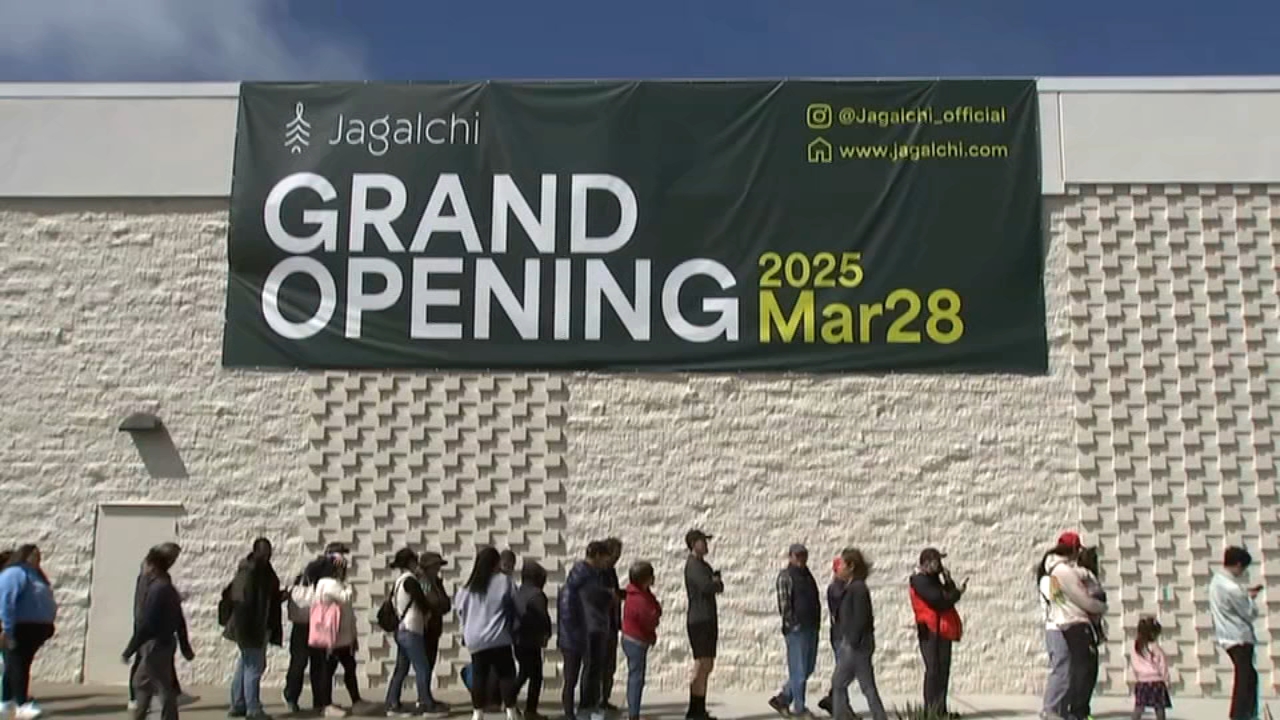Evictions, sick pay, food stamps: Here's what the end of COVID -19 emergency means in San Francisco
With CA lifting the COVID-19 state of emergency, what does this mean for evictions, sick pay and food stamps?


SAN FRANCISCO (KGO) -- Three years after the start of the COVID-19 pandemic, the California statewide state of emergency on Tuesday officially came to an end. And along with it, so did the public health emergencies in several Bay Area counties, including the city and county of San Francisco.
Kristin Urquiza -- the co-founder of Marked by COVID, a group advocating on behalf of people impacted by the pandemic -- has been calling on the City of San Francisco to provide more details on what the end of the health order means for certain pandemic-related policies and protections.
"We want to make sure that evictions, food banks, paid time off, all of these protections remain in place," Urquiza said outside of city hall on Monday, where a group delivered a letter to Mayor London Breed with their concerns.
RELATED: Bay Area counties lifting COVID-19 public health emergency aligning with CA's guidelines
So, are those policies still in place? Here's what we know.
EVICTION PROTECTIONS
Still in place? YES.
A spokesperson for the city of San Francisco told ABC7 News that eviction protections and the city's rental assistance program are not impacted by the end of the city's public health emergency.
"Those eviction protections are in place and remain in place regardless of the public health emergency declared by the public health officials," Anne Stanley, the communications manager for the mayor's Office of Housing and Community development, said.
"The important thing to understand is that there are currently two states of emergencies, or emergency declarations in the city and county of San Francisco," she explained.
One is the public health emergency from the Department of Public Health, which is expiring. The other is an emergency declaration by the mayor, which is not.
That means policies tied to the health department's emergency are ending, but policies tied to the mayor's emergency -- like the eviction protection ordinance -- are not.
Stanley said there is no date for when the mayor's emergency will end, but said when it does end, the city will give advance notice to this impacted.
"We will make sure that there is notice in advance, so we can assure that no one is caught blindsided by the ending of the mayoral declaration," she said. "And we'll have ramped up our eviction protection network to make sure that people have the resources they need to stay in their homes."
Stanley said the city also offers a rental assistance program, which is not tied to any ordinance, and would continue even after the mayor's declaration ends.
SICK PAY
Still in place? NO.
Prop G, which was passed by voters in June, required private companies in San Francisco with more than 100 employees to offer additional sick pay for people who contracted covid-19.
According to Parisa Safarzadeh, a spokesperson for Mayor London Breed's office, that is now ending as it is tied specifically to the city being in a public health emergency.
That said, the permanent ordinance applies anytime the city is in a public health emergency due to an infectious disease, or during a "Spare the Air" day.
"This means, for example, beginning tomorrow 3/1 companies could no longer be required to offer this type of sick pay since the health order will have been lifted," Safarzadeh explained. "But, should it go back into effect again, companies with 100+ employees would again be required to offer this type of sick pay."
EXTRA FOOD STAMPS
Still in place? NO.
Throughout the pandemic, people who rely on CalFresh benefits have been able to get an extra COVID-19 related allotment each month. However, due to changes in the federal budget passed by Congress, those benefits are ending.
"Starting in April, CalFresh households will stop receiving the extra, monthly COVID-19 payment, or 'emergency allotment' they have been receiving," Safarzadeh said in a statement.
The change, whoever, is not tied to San Francisco's public health emergency. It's due to the federal government and impacts every CalFresh recipient statewide.
Safarzadeh said San Francisco residents who need more food resources should visit sfhsa.org/get_food or call 3-1-1.
RELATED: Pandemic-era food stamps end March 1 for nearly 30M Americans: 'We're really going to struggle'
MASKING REQUIREMENTS
Still in place? YES and NO.
This one is a little more complicated.
The end of San Francisco's public health emergency does include changes to the city's mask mandates, however because the statewide masking policy remains in place, the city's new policy will not yet fully kick in.
Here's what we mean: The new San Francisco order says members of the general public will no longer have to mask inside hospitals, healthcare and skilled nursing facilities, and homeless shelters unless the facility chooses to keep that rule. Staff will still be required to wear masks in these settings.
That said, California's statewide order still requires the general public to wear masks in healthcare settings and long-term care and adult senior case settings. In those locations, the city must comply with the state's mandate, thus masks will still be required.
In addition to these changes, other statewide changes include the closure of mass vaccination and testing sites. And also that in mid-November insurance companies will no longer be required to front the costs of COVID-19 tests.
RELATED: Bay Area COVID-19 Tracker
Graph not displaying correctly? Click here to open in a new window.
If you're on the ABC7 News app, click here to watch live







